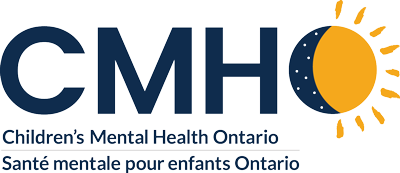The uncovering of 215 unmarked bodies of children buried at the site of a former residential school has rippled across the country. We are in a collective moment of mourning, sorrow, shame, anger, grief and condolence. Our thoughts are with the Tk’emlúps te Secwépemc community and all Indigenous communities as they mourn this heartbreaking loss and re-live this trauma.
Many children, youth and families continue to suffer from the intergenerational trauma residential schools caused. The last residential schools in Canada closed in 1996. This is not distant history – it is a crisis in the present.
The mass grave and genocide of 215 children in Kamloops reminds us of the urgent need for action on dismantling colonial legacies and anti-Indigenous racism and oppression which persist to this day across health and children’s systems including child and youth mental health.
Systemic anti-Indigenous racism is a child and youth mental health issue.
Children’s services, including mental health treatment, youth justice, and children’s aid continue to perpetuate and have long histories of oppression and racial discrimination against Indigenous children, youth and families. There are more Indigenous children now in the care of children’s aid than there were in residential schools at their peak, and Indigenous youth continue to be over-represented in youth justice systems.
We support the calls of Indigenous leaders, Elders and organizations around the urgent need to implement all of the Truth and Reconciliation Commission Calls to Action. We also add our voice to the calls to action from government to ensure Indigenous organizations have everything they need to support their kids.
As settlers, we have work to do to educate ourselves and confront how we continue to benefit from colonialism and operate in systems that have been built to perpetuate systemic oppression and discrimination. We must also recognize our personal and collective roles and responsibilities to reconciliation and de-colonization.
Children’s Mental Health Ontario has a responsibility to use our privilege and our voice in ways which elevate the strength, wisdom and expertise of Indigenous leaders and communities. We also have a responsibility to support the decolonization of mental health care for children, youth and families, and to support Indigenous led solutions and practices for First Nations, Métis and Inuit children, youth and families.
We are committed to advocating alongside and supporting Indigenous leadership for their communities to get essential health care that is appropriate and responsive to Indigenous cultures and traditional teachings – and to significantly reduce the number of Indigenous children in the child welfare system.
The Indian Residential Schools Crisis Line is available 24-hours a day for anyone experiencing pain or distress as a result of his or her Residential school experience. If you need support, please call 1-866-925-4419.
Additionally, you may reach out to one of the following Indigenous organizations that provide child and youth mental health services:
Native Child and Family Services 416-969-8510
Southwest Ontario Aboriginal Health Access Centre 1-877-454-0753
Dilico Anishnabek Family Care 807-623-8511
Recommended Resources for Further Learning
The long history of discrimination against First Nations children
Cindy Blackstock, October 6, 2016
The Overview of the Indian Residential School System
On Canada Project: Settlers Take Action
Opening Conversations about Residential Schools


0 Comments